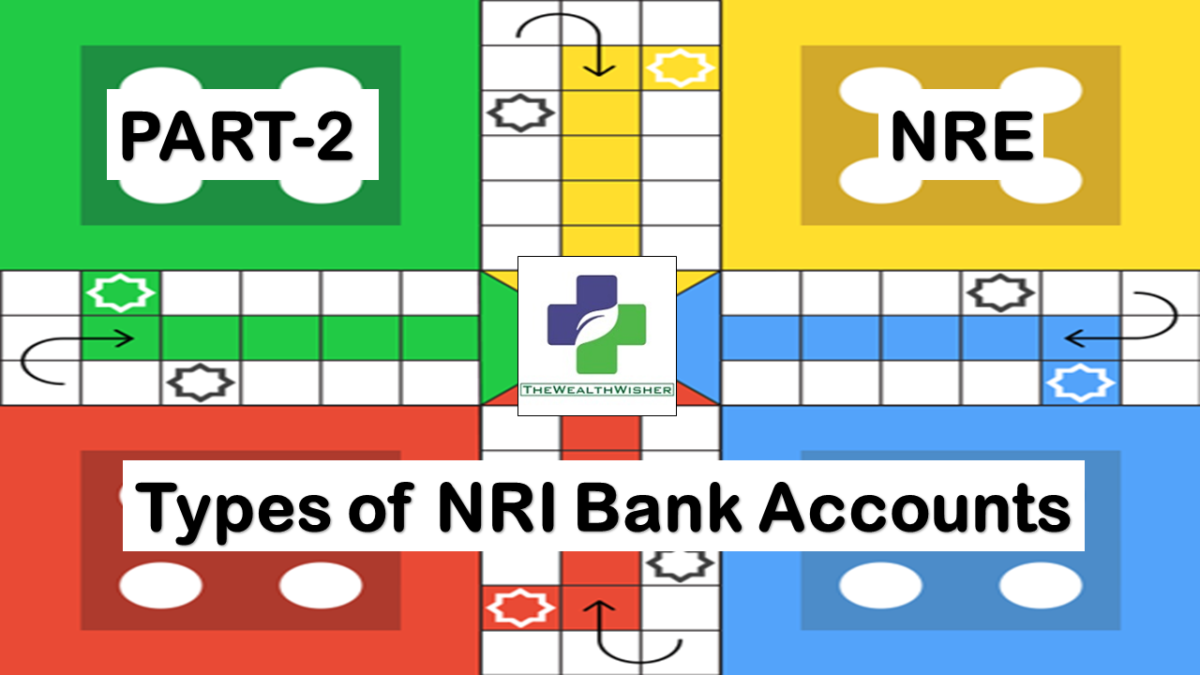This is Part 2 of series of 4 updated articles to update you on the Types of NRI Bank Accounts. We will discuss here the NRE Account for NRI. After NRO the foremost required account is NRE Account or Non-Resident External Account. This account will have all transactions where the earning source is outside India.
We are giving you complete details of NRI related bank accounts. These are:
NRO Account (Click for Details)
NRE Account for NRI (Current Article)
FCNR Account (Click For Details)
RFC Accounts (Click for Details)
You will find complete details, prevailing interest rates, features, requirements, purpose, allowed credits & other datils of these NRI accounts in the above-mentioned articles.
Let us start:
NRE A/c or – Non-Resident (External) Account
NRI individuals – single/joint can open NRE Bank Account. NRE accounts can be opened only by the NRI himself and not through the holder of the power of attorney. After opening it can be managed using the power of attorney (POA).
A POA holder can do all transactions, but remittances/repatriation abroad may be made by only the account holders.
Under NRE, one can open a Savings Fund / Current Account / Recurring Deposit / Term Deposit (with a maturity of
minimum of 1 year & maximum 10 years).
NRE account for NRI is managed in Indian Rupees (INR).
These accounts can be opened in Indian Rupees with/out of the funds received as foreign inward remittances in freely convertible currency through normal banking channels. The Foreign Currency Travelers Cheques / Notes may be accepted during temporary visits of the NRI, for credit to the account.
One can also use transfers from rupee accounts of non-resident banks i.e. from existing NRE / FCNR a/c to NRE a/c and vice-versa permitted without the prior approval of RBI.
NRE accounts can be opened jointly with Indian residents or two or more non-resident individuals provided all the account holders are persons of Indian nationality or origin.
A resident’s close relative (relative as defined in Section 6 of the Companies Act, 1956 ) can be added to NRE account on a ‘former or survivor’ basis.
This resident close relative shall be eligible to operate the account as a Power of Attorney holder in accordance with extant instructions during the lifetime of the NRI/PIO account holder.
NRE Accounts also provide Nomination. This can be in favor of NRI/PIO or a resident.
NRE FD or TERM DEPOSITS
The maturity periods under the NRE-Term Deposit scheme are – 1 Year to 10 Year. The biggest benefit of NRE Deposit or FD is – Interest income from NRE accounts is exempt under Income-tax rules. Also, the deposit held under NRE a/c is not taxable under Wealth Tax.
How interest is payable on NRE deposits to NRIs on return to India?
Banks may allow NRE deposits for NRIs/PIOs, who return to India for permanent settlement, to continue till maturity at the contracted rate of interest, if desired, as per rules. If the returning NRI qualifies for RNOR Status, he may continue to get tax free interest till the maturity of the NRE FD.
At the request of the depositor, Bank also allows premature withdrawal from NRE deposits. A premature penalty may be levied as per the guidelines prevailing at the time of cancellation.
Repatriability under NRE Account
Repatriability means the transfer of funds to a foreign country. All funds (Principal & Interest) is fully repatriable in foreign currencies in an NRE account. No permission or limit is prescribed by regulators.
Permissible Credits in NRE Accounts
– Inward remittance to India in permitted currency.
– Proceeds of account payee cheques, demand drafts/bankers’ cheques, issued against encashment of foreign currency, where the instruments issued to the NRE account holder are supported by encashment certificate issued by AD Category-I / Category-II.
– Transfers from other NRE / FCNR accounts,
– Sale proceeds of FDI investments, interest accruing on the funds held in such accounts.
– Interest on Government securities/dividends on units of mutual funds purchased by debit to the NRE/FCNR(B) account of the holder, certain types of refunds, etc.
Permissible Debits in NRE Account for NRI
Local disbursements, transfer to other NRE / FCNR accounts of person eligible to open such accounts, remittance outside India, investments in shares/securities/commercial paper of an Indian company, etc.








